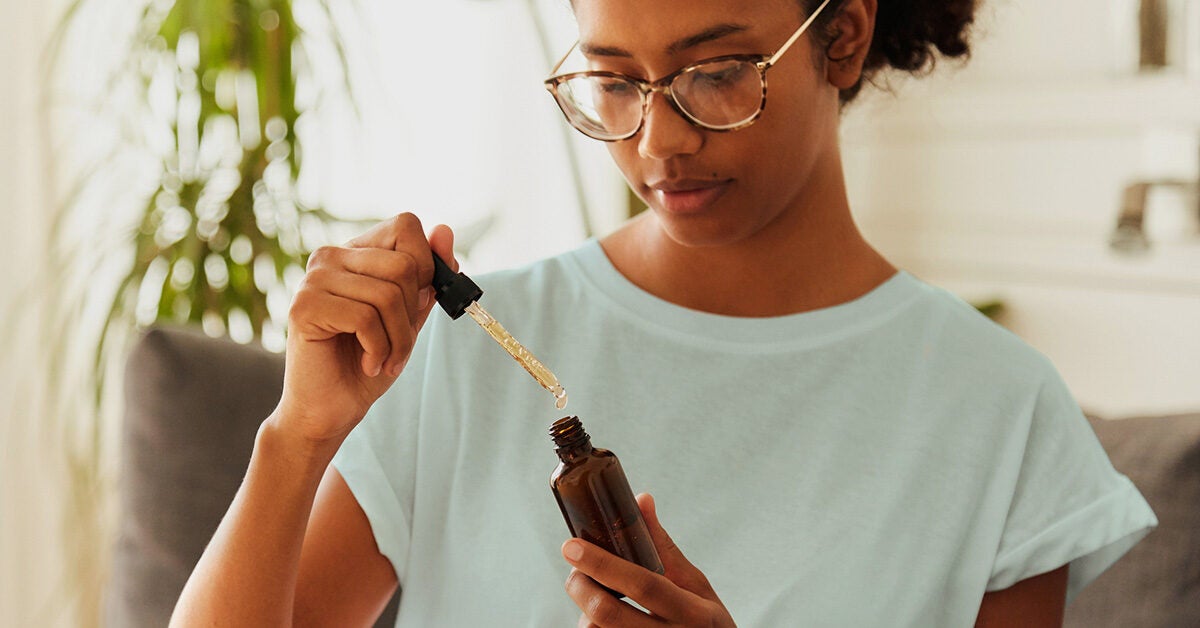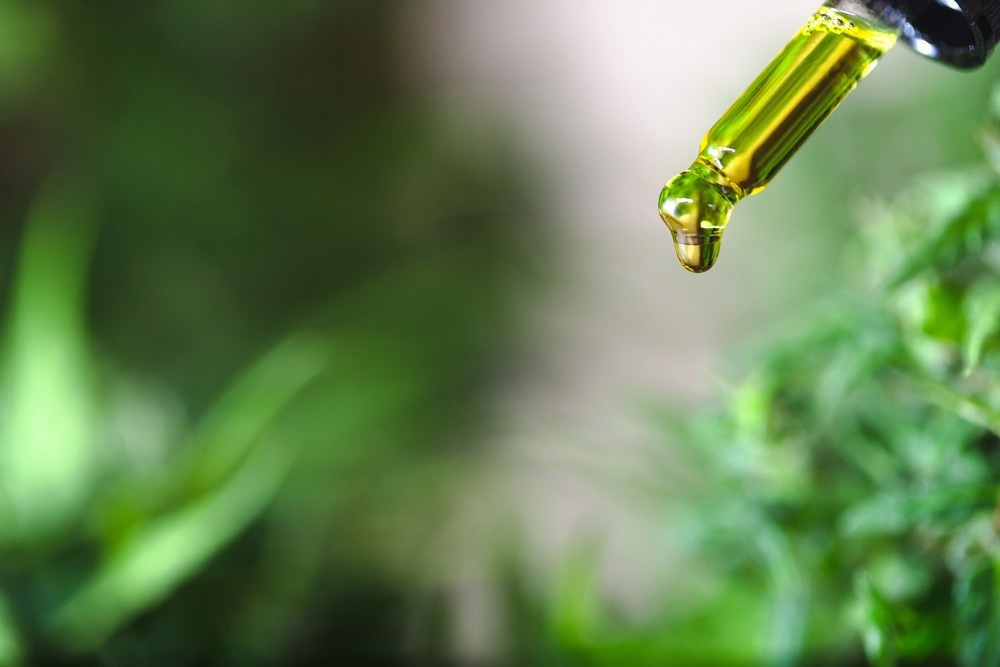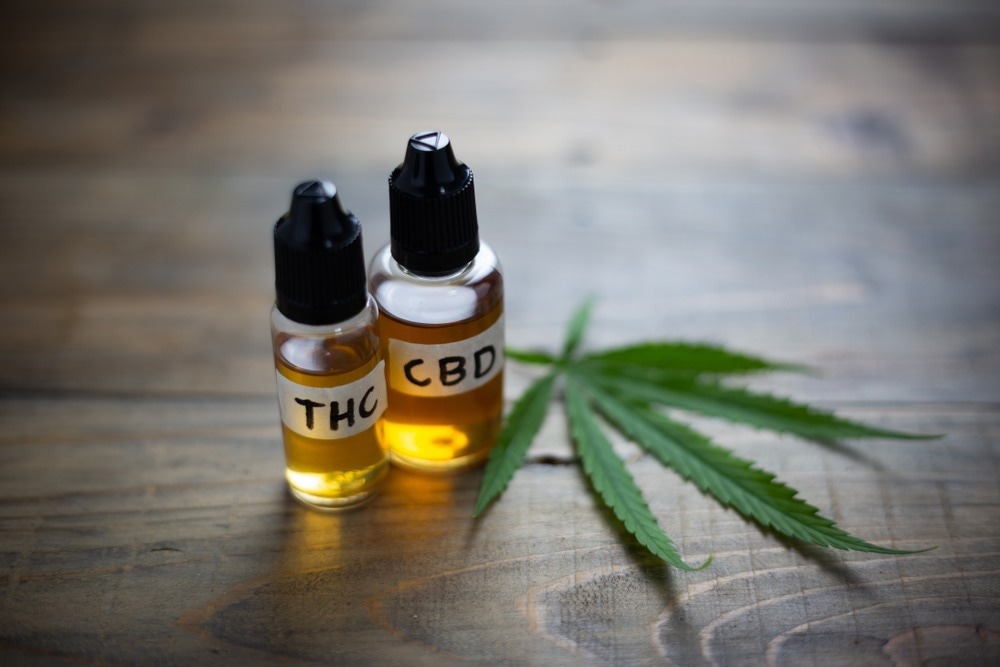Benefits, Side Effects, Precautions, How-to

Acid reflux happens when the contents of your stomach move back up into your esophagus. This can cause a painful, burning sensation in your chest and throat called heartburn.
Gastroesophageal reflux disease (GERD) is a condition in which acid reflux occurs frequently. According to the National Institute of Diabetes and Digestive and Kidney Diseases, about
GERD is often treated with a combination of lifestyle changes and medications that reduce the amount of acid that your stomach makes. In severe cases, surgery may be recommended.
You may have seen information about using cannabidiol (CBD) to help with GERD. While
CBD is a cannabinoid, a type of compound found in cannabis plants. Along with other cannabinoids, CBD works through the endocannabinoid system. This is a signaling system in the body that
The use of CBD has increased greatly over the past several years with people reporting its use for a variety of health conditions.
A
However, there’s currently no scientific evidence that directly links CBD use to improving GERD symptoms.
Much of the research on this topic focuses on cannabinoids in general or on tetrahydrocannabinol (THC). THC is the euphoric component of cannabis, meaning that it’s the component that causes a feeling of being high. Let’s explore what’s known so far.
Cannabinoids may prevent esophageal relaxation
An important cause of GERD is the weakening of the lower esophageal sphincter (LES). The LES is a muscular valve that separates your esophagus from your stomach.
While the LES opens to let food pass into your stomach, it typically remains closed to keep your stomach contents from flowing back into your esophagus. If the LES is weakened, it can relax when it shouldn’t, leading to acid reflux.
A
If abnormal LES relaxations are inhibited, it means that less stomach acid can flow into the esophagus. While more research is needed, this opens the door for the study of new drugs that target LES relaxation, which may include cannabinoids.
Cannabinoids may reduce stomach acid
Medications for GERD focus on reducing the production of stomach acid. A 2016 review of research noted that cannabis and cannabinoids appear to reduce stomach acid production and may protect stomach tissue from damage.
However, it’s important to note that the majority of the research was done in animals and also focused on synthetic cannabinoids such as WIN 55,212-2 or cannabis extracts high in THC. The effect of CBD in particular wasn’t discussed.
CBD may lower inflammation and oxidative stress
GERD is associated with increased levels of inflammation and oxidative stress. These can both contribute to damage to the esophagus.
One of the benefits of CBD is that it has
We’re still learning more about the safety of CBD. According to the
Because CBD causes drowsiness, using it along with alcohol or other depressant medications, such as those to treat anxiety or sleep disorders, can have a compounding effect. This can increase your risk of having an accident or injury.
It’s also been found that CBD may increase liver enzymes in large doses, which can be a marker for liver damage.
If you’re currently pregnant or breastfeeding, the FDA strongly
- We still don’t have a good understanding of how CBD impacts pregnant people, a developing fetus, or a breastfed baby.
- Some CBD products may contain THC or other potentially harmful chemicals.
CBD may also interact with other medications that you’re taking. The list of medications that can be affected
There’s not currently any evidence that using CBD can make your acid reflux worse. However, if you use CBD for GERD and find that your symptoms intensify, stop using it.
As we mentioned earlier, CBD can also potentially interact with different types of medications. These include medications for GERD called proton pump inhibitors (PPIs). A few examples of PPIs include:
CBD inhibits the activity of the enzyme that’s responsible for breaking down these drugs in the body. That means that they can stick around for longer, leading to an increased risk of PPI side effects such as diarrhea and headache.
If you’re interested in using CBD for GERD, there are a few ways that you can take it orally. These include:
There are also a few different forms of CBD to be aware of. These include:
- Isolate: Isolate CBD contains CBD only and no other compounds from the cannabis plant.
- Broad-spectrum: Broad-spectrum CBD contains additional compounds that are found in the cannabis plant, except for THC.
- Full-spectrum: Full-spectrum CBD contains additional compounds that are found in the cannabis plant, including very small amounts of THC.
Full-spectrum CBD is generally believed to have a greater impact due to the entourage effect. This is a theory that suggests that CBD, THC, and other compounds in cannabis all work together to achieve a greater effect.
What dose of CBD should you use?
When it comes to what CBD dose to use, there’s no one answer. According to a publication from the World Health Organization (WHO), participants in clinical trials and research studies have safely used up to 800 milligrams (mg) of CBD.
Epidiolex, a prescription CBD product that’s approved by the FDA and is taken orally, has dosing recommendations based on weight. A recommended starting dosage is 5 mg/kg each day. This can eventually be raised to 10 mg/kg per day.
However, other types of CBD fall outside FDA guidelines, meaning that dosing isn’t standardized. Additionally, the potency may vary between products.
So, at the end of the day, the right CBD dosage can depend on many factors. These include things such as:
- the type of product (oil, capsule, gummy)
- whether the product is isolate, broad-spectrum, or full-spectrum CBD
- the concentration of CBD per milliliter (mL), per capsule, or per gummy
- your body weight
- whether you’re taking any medications that may interact with CBD
- how you’ve reacted to CBD in the past
A good rule of thumb is to speak with a doctor before using CBD for GERD. They can help to determine whether specific CBD products are safe and recommend an appropriate starting dosage for you individually.
If a doctor doesn’t give you a recommended dosage, start off with the lowest dose and frequency of CBD. You can slowly increase the amount that you take to find a dose that best addresses your symptoms.
There’s no one best candidate for who should consider CBD for GERD. Some things to think about when deciding to try CBD for GERD include:
- Research: CBD isn’t a first-line treatment for GERD, and while preliminary research is promising, its use hasn’t been directly tied to improved GERD symptoms.
- Medications: If you currently take any medications, remember that CBD may interact with them, including PPIs that are used for GERD.
- Symptoms: How frequent or severe are your symptoms? Do medications and lifestyle changes work well to manage them? If not, speak with a doctor about other management strategies, which may or may not include CBD.
- Side effects: CBD can cause its own side effects, such as drowsiness or diarrhea. If you’ve previously used CBD, consider how you reacted to it in the past.
- Safety: CBD products aren’t regulated by the FDA. Because of this, you’ll have to shop carefully to ensure that you purchase a product that’s safe and free from potentially harmful additives.
As we mentioned earlier, the FDA doesn’t regulate the sale of CBD products. Because of this, it’s up to you to choose a safe, high-quality product.
You can find CBD products for sale online or purchase them directly at natural goods stores, specialty shops, or cannabis dispensaries. Some things to check for on the label include:
- CBD type: Is the product isolate, broad-spectrum, or full-spectrum CBD?
- Ingredients: Make sure that the product actually lists CBD (cannabidiol), keeping in mind that some products may list CBD as hemp extract. Other ingredients that may appear depend on the type of product and can be:
- a carrier oil, such as hempseed oil or grapeseed oil
- artificial colorings or flavorings
- Concentration: Verify the amount of CBD that you’re getting per mL (for liquid products), per capsule, or per gummy.
- Certificate of analysis (COA): Reputable products should come with a COA. This means that it’s been tested by a third-party lab to make sure that it contains the ingredients and concentrations listed on the label.
- Health claims: You may come across some products that claim to treat a variety of diseases or conditions. Making claims like these is only legal for FDA-approved drugs, so if it sounds too good to be true, it probably isn’t true.
It’s also important to check the laws associated with your state. CBD can be classified as either:
- Hemp-derived: These products come from cannabis plants but contain no more than 0.3 percent THC, based off of dry weight.
- Marijuana-derived, or CBD with more than 0.3 percent THC: These products also come from cannabis plants but have higher amounts of THC than do hemp-derived CBD products. The term “marijuana” is being used here as per its legal definition outlined in the Controlled Substances Act.
What you can legally buy depends on your state. While some states allow the purchase of one or both types of CBD products, in some states, you can’t purchase CBD products at all. You can check your state’s cannabis laws here.
Many people use the words “cannabis” and “marijuana” interchangeably. This may lead you to think that CBD is also marijuana, but that’s not the case. Let’s take a moment to break down each of these terms:
- Cannabis: “Cannabis” can be used to refer to any product that comes from the cannabis plant. This term encompasses both CBD and marijuana products.
- Marijuana: Typically, when people mention “marijuana,” they mean cannabis that can produce a “high,” or euphoric feeling. “Marijuana” is used to reference the parts of the cannabis plant that contain high levels of THC, which is the compound that causes the high associated with use of this form of cannabis. It has a legal definition under the Controlled Substances Act. However, the term is controversial because of its roots in racism. More recently, people in the industry prefer to use the term “cannabis” instead, which can be confusing, as hemp is also derived from the cannabis plant.
- CBD: “CBD” refers to cannabidiol, a compound found in cannabis plants that have both high levels (marijuana) and low levels (hemp) of THC. However, CBD by itself isn’t euphoric, which means that it doesn’t cause a high.
Early research indicates that CBD could be beneficial for GERD. Some ways that it may potentially do this are by:
- limiting LES relaxation
- lowering stomach acid production
- reducing levels of inflammation and oxidative stress
However, additional research studies and clinical trials are needed to directly tie CBD to an improvement in GERD symptoms. There are currently other medical and lifestyle changes that are recommended to treat GERD.
If you choose to use CBD for GERD, ask a doctor about which products are safe, appropriate dosing, and any potential drug interactions. Always do your own research to ensure that the product you choose is safe and of good quality.
Is CBD legal?The 2018 Farm Bill removed hemp from the legal definition of marijuana in the Controlled Substances Act. This made some hemp-derived CBD products with less than 0.3 percent THC federally legal. However, CBD products containing more than 0.3 percent THC still fall under the legal definition of marijuana, making them federally illegal but legal under some state laws. Be sure to check state laws, especially when traveling. Also, keep in mind that the FDA has not approved nonprescription CBD products, and some products may be inaccurately labeled.







